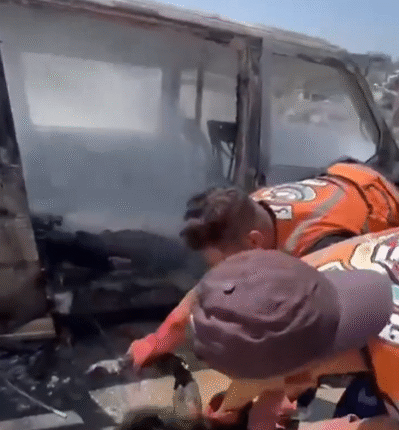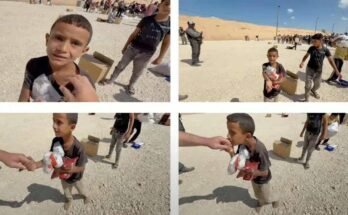A ceasefire between Israel and Hamas was announced with a cautious feeling of relief, bringing a ray of hope that the weeks of heavy violence would come to an end. That moment was marred immediately by reports confirming more than 100 Palestinian civilians have been killed in Israeli attacks in Gaza since the deal was announced.
Among them was Dr. Hala Abu Ahmed, a dedicated doctor who had spent her life serving others with altruism and grit. Dr. Hala had braved the fighting to treat the injured in northern Gaza before moving to Gaza City when the fighting made it impossible for her to continue living there. There, she continued to work, providing vital support to medical teams at the Baptist Hospital, tending to the injured up until her tragic death in an Israeli airstrike that also claimed the lives of her family members. Her death is a reminder of the devastating human cost of a conflict that remains unresolved despite the ceasefire.
Ceasefires have conventionally been regarded as an opportunity to temporarily bring hostilities to a grinding halt and ensure much-needed reprieve for the suffering populations. Yet, the happenings in Gaza underlined the fragility of such agreements. Even after the ceasefire was announced, bombings and military actions continued unabated, further worsening the humanitarian crisis in the region.
For the more than 2 million residents of Gaza, already facing extreme restrictions and limited access to basic resources, these attacks represent yet another chapter in a protracted cycle of violence. International observers and humanitarian organizations have expressed concern over the disregard for civilian lives and the challenges in delivering aid to those in desperate need.
Dr. Hala’s story is only a small example among the many stories of what this war means to the daily lives of civilians. As a doctor, she fought tirelessly to alleviate the suffering of others-a spirit of resistance in the chaos surrounding her. Her death, among so many other deaths, has again reminded us that ceasefires can be only partial solutions to any deeper issues at the heart of the Israeli-Palestine conflict.
The ceasefire is a big step politically, but it seems tenuous. With entrenched mistrust between the two sides and no roadmap for peace in the long run, analysts question whether it will hold. Moreover, unless the root causes-from territorial disputes to the humanitarian blockade on Gaza-are dealt with, the cycle of violence is bound to persist.
Ceasefires are needed so that immediate violence can cease, but any such move has to come with concrete directions on the protection of civilian lives and response to humanitarian situations. Much needs to be done by the world community in holding parties liable for violations and seeing that relief reaches those most deserving. Stories like those of Dr. Hala should serve to foreground the human costs of this war over political interests.
While the world over is watching this, the ceasefire can’t be a full stop on the discussion but a beginning to a dedicated campaign of peace. For the people in Gaza and Israel, nothing is owed but a bright future in which the likes of Dr. Hala Al-Tal should be celebrated in life and living for what she did and is still doing.



